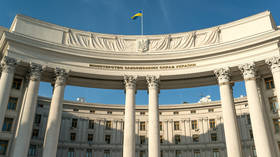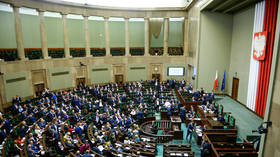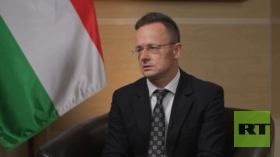US drops another $2.2 billion on Ukrainian military

The administration of US President Joe Biden has pledged another $2.2 billion in long-term military financing to Ukraine and 18 neighbor states and territories “potentially at risk of future Russian aggression,” pending approval by Congress, Secretary of State Antony Blinken revealed on Thursday during an unannounced visit to Kiev.
Blinken met with President Vladimir Zelensky and other senior officials to discuss the details of the $2.2 billion package, of which $1 billion will go to Ukraine. The rest will be divided among “regional security partners” in order to help them “deter and defend against emergent threats to their sovereignty and territorial integrity” through strengthening their coordination with NATO and combating “Russian influence and aggression,” according to the State Department.
Splitting the remainder of the money are Albania, Bosnia, Bulgaria, Croatia, the Czech Republic, Estonia, Georgia, Greece, Latvia, Lithuania, Moldova, Montenegro, North Macedonia, Poland, Romania, Slovakia, Slovenia, and the breakaway Serbian province of Kosovo, which declared independence in 2008 but remains largely unrecognized as such outside of the American sphere of influence.
Blinken hailed the Ukrainian “counteroffensive” against Russian forces in the south as “effective,” calling it a “pivotal moment” for Kiev, while Zelensky thanked the visiting diplomat for “this enormous support that you’re providing on a day to day basis.”
The aid package was the second announced on Thursday, following on the heels of Defense Secretary Lloyd Austin’s pledge of $675 million more in heavy weaponry, armored vehicles and ammunition to the Ukrainian war effort. Austin was joined by the German and Dutch defense ministers, who offered training and more equipment to Kiev.
As of August 3, the US had committed a total of $44.3 billion in aid to Ukraine since the launch of Russia’s military operation in February. Biden's Democratic Party is expected to face tough midterm elections in November as polls indicate voters are much more concerned by inflation and other economic issues than the supposed Russian “threat.”












